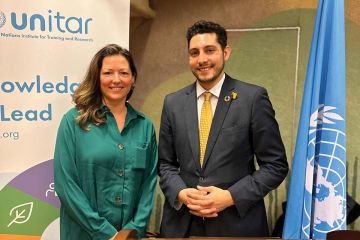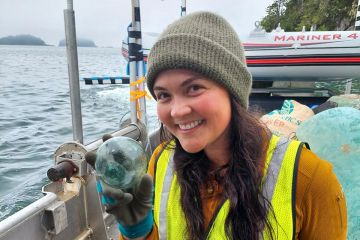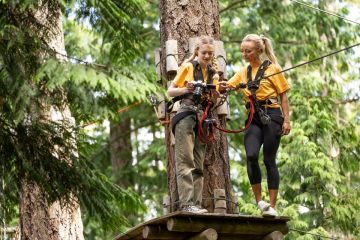Co-op in the classroom: Completing the learning circle
Peter B. Gustavson School of Business
- Dianne George
UVic is renowned for its focus on experiential learning, and the Faculty of Business, with its philosophy of integration, has developed new ways to transfer workplace learning back into the classroom, to complete the learning circle.
In addition to making co-operative education a required element of the BCom and MBA programs, business also established Canada’s first experiential learning officer position in 2006. Jennifer Gill, who now fills that role, works with students on their co-op learning journey.
“I give them ideas on how to connect and leverage their academic and co-op learning experience to prepare for future career paths.”
Gill also works with faculty members to share student co-op reports and has developed an online teaching resource site for business instructors. Her most recent initiative encourages final-term students to share their experiences and insight gained through their academic studies, co-op work terms and international exchanges with prospective employers in a poster exhibition event.
Earlier this year, Dr. Lynne Siemens, who had redesigned her Business and Government Relations (Com 440) class, put some of Gill’s ideas into practice. Siemens started by assigning 5 per cent of the final grade to the co-op integration project. The assignment included a written paper in which students reflected on an issue related to business-government relations that they encountered while at work. She held in-class discussions about the issues and strategies students used to manage the issue.
“I was really pleased with the results,” Siemens says. “I had students from different faculties in the class, but they all had a co-op or other work experience. This assignment helped to build common ground.”
Teresa Sims, a fourth-year BCom student, found the assignment engaged her in unexpected ways. “We do a lot of cases in the program, but I really liked talking about something that I had actually experienced,” says Sims. “A case is four or five pages, whereas a work-term is four months. It made the assignment more interesting and opened the door to conversations I might not have had with other students.”
In addition to in-class discussion, professors have incorporated the experience in other ways. Some post questions on Blackboard, where students are asked to relate course concepts to their co-op work term; another invited students to blog about the structure of their co-op organization.
And all that is music to Gill’s ears. “Engaging students in discussion about issues that arise in the workplace adds a reflective element. It helps cement their learning and builds critical thinking skills,” says Gill.
More than 3,000 undergraduate and graduate students participate in co-operative education at UVic, linking their academic studies to real- world experiences.
UVic faculty members can learn more about integrating student co-op workplace experiences into the classroom by contacting Co-op and Career Services at 250-721-7628. Experiential Learning Officer Jennifer Gill can be reached at 250-853-3750.
In this story
People: Jennifer Gill




